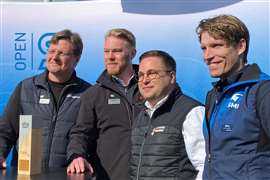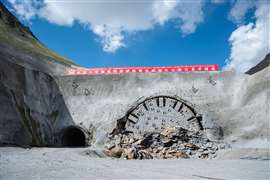US$ 200 billion Red Sea link
06 June 2008
The project will be the region's largest infrastructure project. Work on the 28.5 km long bridge will begin in 2009. Two cities will also be constructed in Djibouti and Yemen, according to a company official.
Middle East Development, which is connected to the Bin Laden family, will invest at least US$ 10 billion in the project and seek to raise the remainder from other investors and financial institutions.
The bridge, to be the development's centrepiece, will carry vehicles, trains, natural gas and water. It aims to provide a safe route between the Arabian Peninsula and the Horn of Africa region as the waterway between them is highly dangerous due to Somali pirates.
Denmark's Cowi, which is also the consultant on the world's longest, planned causeway linking Qatar with Bahrain, is advising on the bridge. It is expected the bridge will cost US$ 14 billion, with construction of the entire scheme completed in phases over seven to 15 years.
"We will have seed capital of at least US$ 10 billion... and US$ 190 billion in project finance," said a company spokesman, adding that private investors would also participate, primarily through build-operate-transfer contracts.
Middle East Development expects to house up to 5 million people in Yemen and 1.5 million in Djibouti under the project. The "Noor" cities will include residential, commercial, healthcare and entertainment areas, and would create about one million jobs.






